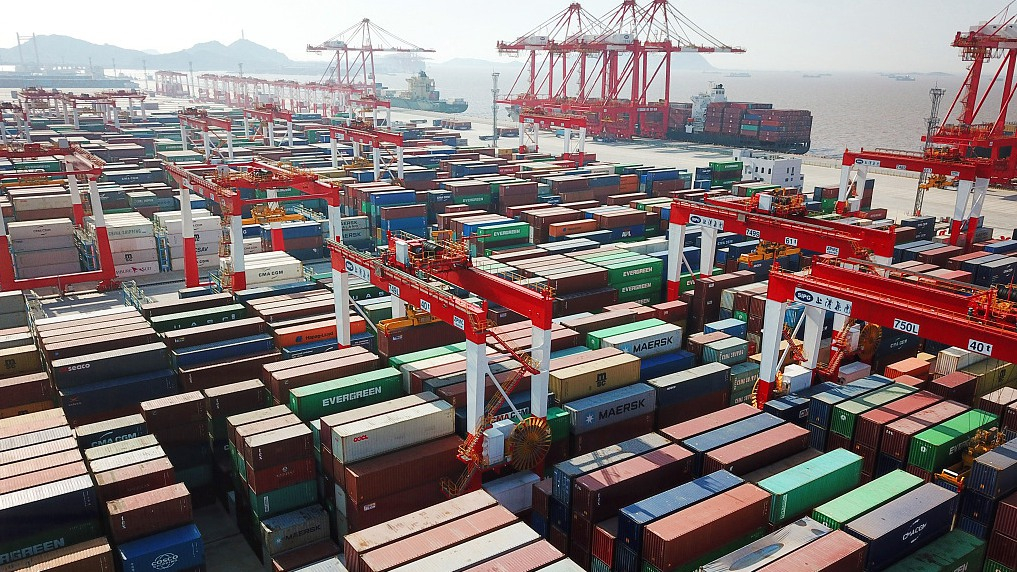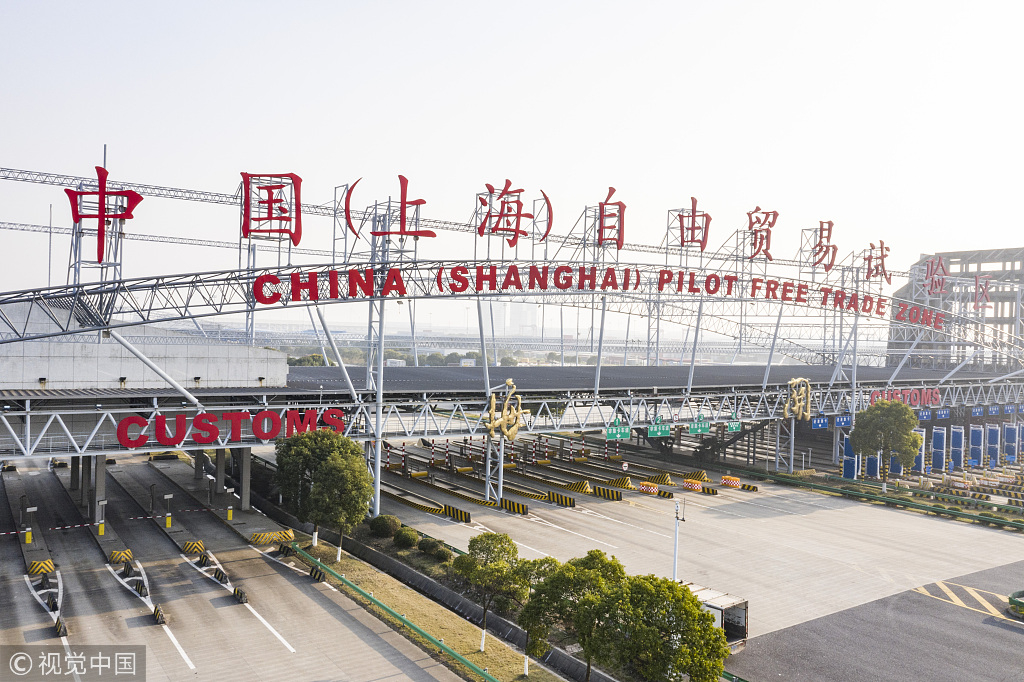
Opinion
12:12, 25-Mar-2019
Foreign Investment Law: Constitutional or unconstitutional?
Updated
14:50, 25-Mar-2019
Zhu Zheng

Editor's note: Zhu Zheng is an assistant professor at the China University of Political Science and Law who focuses on constitutional law and politics. The article reflects the author's opinion, and not necessarily the views of CGTN.
The 2019 China Development Forum (CDF) has entered its last day. The annual event is an important platform for the Chinese government to have dialogues with overseas leaders and scholars and discuss China's economic policies. The theme of the forum this year is "Greater Opening-up for Win-Win Cooperation," a clear indication of the country's resolve to engage more with the outside world.
Over the past four decades, through reforms and by opening its domestic market to the outside world, China has transformed from what was once an economic backwater to a manufacturing powerhouse.
The common perception of China's rise is that foreign investment has given a great boost to the Chinese economy. Therefore, in order to further boost growth, China should involve itself in more international cooperation, and this message is echoed in this year's CDF discussions, in which guests have not only addressed broad concerns such as globalization and China-U.S. trade conflicts, but also more specific topics related to the Chinese economy, such as its fiscal and financial policies.

China (Shanghai) Pilot Free Trade Zone, December 17, 2018. /VCG Photo
China (Shanghai) Pilot Free Trade Zone, December 17, 2018. /VCG Photo
China has demonstrated its willingness to further open up not only through its words, but also by taking action. The recently passed Foreign Investment Law (FIL), for example, promises fair treatment to foreign investors in China and forbids forced technology transfers.
While enough has been said about the implications and the meanings of the new law, few people have examined the new statute from a constitutional perspective.
As summarized by some analysts, the newly enacted FIL has made at least three vital "constitutional breakthroughs" as follows.
First, regarding foreign enterprises, foreign economic organizations and individual foreigners, while Article 18 of the 1982 Chinese Constitution only provides that they are "permitted" to invest in China, the new law has a more positive attitude towards them as it says the country “encourages” foreign investment.
According to the FIL, there are three types of foreign investments -- those that should be “encouraged,” “permitted,” and “restricted.” A recently conducted survey has revealed that almost 85 percent of the current foreign investment is in the first category, which shows that the authorities are becoming more welcoming to foreign investment.
Second, while the Constitution identifies foreign enterprises only as those taking the forms of joint ventures and cooperative enterprises, the FIL added "exclusively foreign-owned enterprises" to the category and has finally given them legal recognition and encouraged their operation in China. As a matter of fact, the majority of foreign companies in China are exclusively foreign-owned enterprises. Thus, the need to recognize them and give them legal protection is understandable.
Third, while the second part of Article 18 in the Constitution does stipulate that the lawful rights and interests of all foreign enterprises, foreign economic organizations and Chinese-foreign joint ventures in China are protected, it also emphasizes that all these organizations shall abide by the Chinese law in the first place. With the rollout of the FIL, a subtle difference can be sensed as the new law is less focused on these foreign entities’ obligations; instead, it highlights the government’s resolution to protect their legal rights and offers assurances for them to do business in the country.
At first glance, the above analyses seem to have illustrated that the FIL contradicts the Constitution. However, in a deeper sense, it should be admitted that not all salutary reform practices in China were rolled out along the constitutional line: from time to time the anachronistic and excessively restrictive constitutional order would have to be broken to make way for new progress.
Messages sent at the 2019 CDF signify that more substantial reforms will be conducted in the area of foreign investment, and to some extent, the more recent efforts, including the passage of the FIL, is in line with the broad aim of achieving more prosperity. By these actions it is clear that China is blazing a trail of international collaboration.
(If you want to contribute and have specific expertise, please contact us at opinions@cgtn.com)

SITEMAP
Copyright © 2018 CGTN. Beijing ICP prepared NO.16065310-3
Copyright © 2018 CGTN. Beijing ICP prepared NO.16065310-3